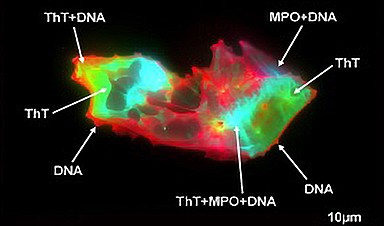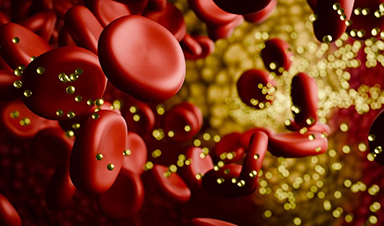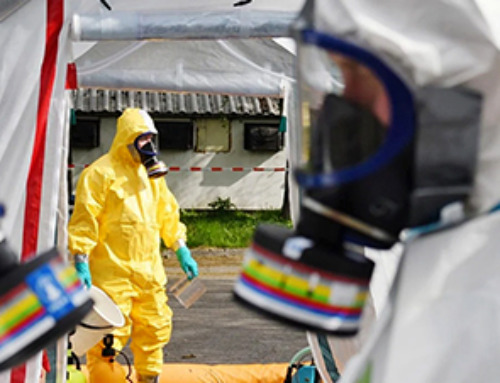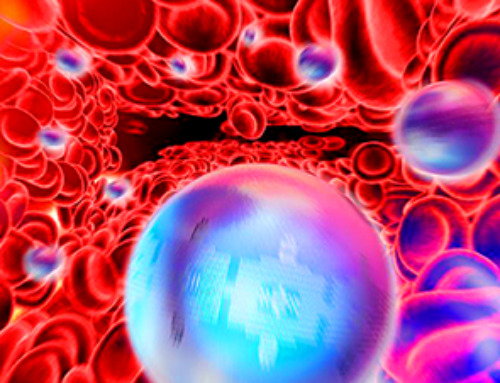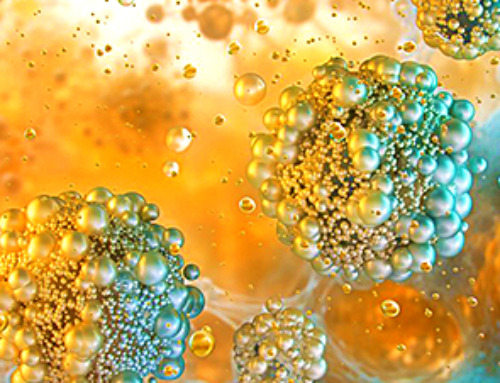It has been 30 years since the last new class of antibiotic was introduced to the market. All the existing drugs are essentially variations on a theme: they kill bacteria, in similar ways. Some burst cells walls, others block DNA replication.
But the bacteria are swiftly evolving to survive those chemical attacks – and as they survive, they become virulent superbugs. Without new antibiotics, by 2050 the death toll from drug-resistant infections is projected to reach 10 million people a year, making the coronavirus pandemic seem almost quaint.
This is why scientists at Plymouth University have been searching the cold, dark abyss of the north Atlantic – where they have found sponges that contain powerful molecules capable of killing those superbugs.
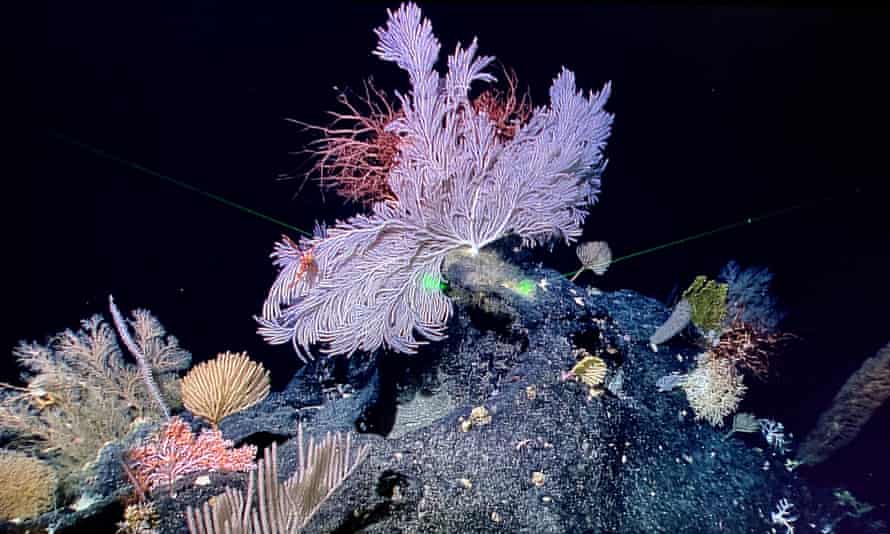
Kerry Howell, professor of deep-sea ecology, and her colleagues have been carefully collecting specimens of these plant-like animals, bringing them back to the lab and testing pulverised extracts against stubborn, disease-causing bacteria. Among the deep-sea molecules, they are finding promising bactericidal novelties.
“We don’t actually know exactly what they are yet,” says Prof Mat Upton, a microbiologist who leads the laboratory side of the biodiscovery programme at Plymouth. “We’ve got compounds that kill bacteria that we want to try to kill, and we have a pretty good idea that they are new compounds. It is early, but things are progressing through the pipeline.”
The hit rate for finding powerful and useful new compounds is proving to be especially high among animals of the deep sea. Hundreds of biologically active compounds have been found at the bottom of the ocean, some already in widespread use. Enzymes found in bacteria living around hydrothermal vents are even being used in tests for the Covid virus.
Yet novel antibiotics and an untold variety of beneficial molecules could easily be wiped out if ecosystems around vents and elsewhere on the ocean floor were to be destroyed by deep-sea mining, which could go ahead in less than two years. Even after 40 years of scientific research since hydrothermal vents were first found, a tremendous amount is still being discovered about these extreme ecosystems, which thrive in scorching, toxic waters pouring through cracks in the deep seabed, miles underwater.
Howell says: “Part of the big concern that all deep-sea ecologists have is that we know just how little is known about these areas and we are desperately trying to play catch-up with the [deep-sea mining] industry. To my mind, that’s the wrong way round. We ought to be finding out about these places before we even consider mining them.”
One of the potential targets for deep-sea mining is the south-east Atlantic abyss, where Howell is planning her next expedition, along with South African colleagues. “It’s one of the least-explored parts of our planet. There’s really very little data,” she says .
News
Fever-Proof Bird Flu Variant Could Fuel the Next Pandemic
Bird flu viruses present a significant risk to humans because they can continue replicating at temperatures higher than a typical fever. Fever is one of the body’s main tools for slowing or stopping viral [...]
What could the future of nanoscience look like?
Society has a lot to thank for nanoscience. From improved health monitoring to reducing the size of electronics, scientists’ ability to delve deeper and better understand chemistry at the nanoscale has opened up numerous [...]
Scientists Melt Cancer’s Hidden “Power Hubs” and Stop Tumor Growth
Researchers discovered that in a rare kidney cancer, RNA builds droplet-like hubs that act as growth control centers inside tumor cells. By engineering a molecular switch to dissolve these hubs, they were able to halt cancer [...]
Platelet-inspired nanoparticles could improve treatment of inflammatory diseases
Scientists have developed platelet-inspired nanoparticles that deliver anti-inflammatory drugs directly to brain-computer interface implants, doubling their effectiveness. Scientists have found a way to improve the performance of brain-computer interface (BCI) electrodes by delivering anti-inflammatory drugs directly [...]
After 150 years, a new chapter in cancer therapy is finally beginning
For decades, researchers have been looking for ways to destroy cancer cells in a targeted manner without further weakening the body. But for many patients whose immune system is severely impaired by chemotherapy or radiation, [...]
Older chemical libraries show promise for fighting resistant strains of COVID-19 virus
SARS‑CoV‑2, the virus that causes COVID-19, continues to mutate, with some newer strains becoming less responsive to current antiviral treatments like Paxlovid. Now, University of California San Diego scientists and an international team of [...]
Lower doses of immunotherapy for skin cancer give better results, study suggests
According to a new study, lower doses of approved immunotherapy for malignant melanoma can give better results against tumors, while reducing side effects. This is reported by researchers at Karolinska Institutet in the Journal of the National [...]
Researchers highlight five pathways through which microplastics can harm the brain
Microplastics could be fueling neurodegenerative diseases like Alzheimer's and Parkinson's, with a new study highlighting five ways microplastics can trigger inflammation and damage in the brain. More than 57 million people live with dementia, [...]
Tiny Metal Nanodots Obliterate Cancer Cells While Largely Sparing Healthy Tissue
Scientists have developed tiny metal-oxide particles that push cancer cells past their stress limits while sparing healthy tissue. An international team led by RMIT University has developed tiny particles called nanodots, crafted from a metallic compound, [...]
Gold Nanoclusters Could Supercharge Quantum Computers
Researchers found that gold “super atoms” can behave like the atoms in top-tier quantum systems—only far easier to scale. These tiny clusters can be customized at the molecular level, offering a powerful, tunable foundation [...]
A single shot of HPV vaccine may be enough to fight cervical cancer, study finds
WASHINGTON -- A single HPV vaccination appears just as effective as two doses at preventing the viral infection that causes cervical cancer, researchers reported Wednesday. HPV, or human papillomavirus, is very common and spread [...]
New technique overcomes technological barrier in 3D brain imaging
Scientists at the Swiss Light Source SLS have succeeded in mapping a piece of brain tissue in 3D at unprecedented resolution using X-rays, non-destructively. The breakthrough overcomes a long-standing technological barrier that had limited [...]
Scientists Uncover Hidden Blood Pattern in Long COVID
Researchers found persistent microclot and NET structures in Long COVID blood that may explain long-lasting symptoms. Researchers examining Long COVID have identified a structural connection between circulating microclots and neutrophil extracellular traps (NETs). The [...]
This Cellular Trick Helps Cancer Spread, but Could Also Stop It
Groups of normal cbiells can sense far into their surroundings, helping explain cancer cell migration. Understanding this ability could lead to new ways to limit tumor spread. The tale of the princess and the [...]
New mRNA therapy targets drug-resistant pneumonia
Bacteria that multiply on surfaces are a major headache in health care when they gain a foothold on, for example, implants or in catheters. Researchers at Chalmers University of Technology in Sweden have found [...]
Current Heart Health Guidelines Are Failing To Catch a Deadly Genetic Killer
New research reveals that standard screening misses most people with a common inherited cholesterol disorder. A Mayo Clinic study reports that current genetic screening guidelines overlook most people who have familial hypercholesterolemia, an inherited disorder that [...]













